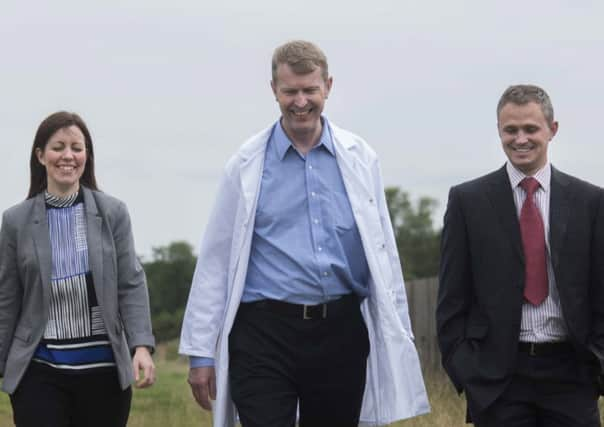Yorkshire scientists could hold key to preventing future horsemeat scandals


Scientists in York have developed technology which allows people to authenticate the exact provenance of food and are set to roll it out to retailers worldwide from this month.
The technique, Stable Isotope Reference Analysis (SIRA), has a background in forensic science and archeology and uses laboratory analysis to test the declared origin of food virtually down to postal code level.
Advertisement
Hide AdAdvertisement
Hide AdThe technology has been developed by Agroisolab UK, a subsidiary of Longhand Data in York, and has been eight years in the making.
Alongside a German firm, Agroisolab GmbH, the new science will allow retailers to cost-effectively test the country of origin for a wide range of meat and grocery products, including all agricultural produce such as pork, beef, eggs, vegetables and fruit, which have either been grazed or grown on the land.
The horse-gate food scandal, which rocked British supermarkets three years ago, focused the attention of retailers on being able to irrefutably confirm the nature of the products they buy.
Longhand Data managing director, Roger Young, a biologist and former corporate farmer, said: “When we buy meat or other products, we have a legal right to know that what we are buying is correctly labelled.
Advertisement
Hide AdAdvertisement
Hide Ad“To knowingly misrepresent or give false declaration of origin, can be a criminal offence.
“Involving the law often means that the retailer and supplier end up in court which is hugely damaging to customer confidence and their brand values.
“The ‘horse-gate’ scandal showed that paperwork can be fooled. Laboratory analysis to authenticate the origin of food is accurate, hard to subvert, faster and more cost-effective than conventional traceability processes.”
The new process is now being launched commercially in York with legal support from Harrowells Solicitors.
Advertisement
Hide AdAdvertisement
Hide Ad“We already have major industry bodies such as The British Pig Executive (BPEX), part of the Agricultural and Horticultural Development Board (AHDB), signed up.
“We also have a contract with Associated Beef Producers (ABP) and are well on the way to building the biggest UK beef database. We are contracted to two of the five major supermarkets.”
Following the adoption of the European Union Food Information Regulation 1069/2011 (FIR), EU countries face more extensive mandatory country of origin labelling (COOL) requirements including, for meat products, the rearing period and place of slaughter and food processors and retailers can face significant fines for breaches.
Yorkshire found itself at the centre of the scandal in 2013 when a slaughterhouse boss in Todmorden, West Yorkshire, was arrested over allegations he had processed horses through his abattoir.
Advertisement
Hide AdAdvertisement
Hide AdIn January of this year Peter Boddy was convicted and jailed for four months after pleading guilty to failing to abide by EU meat traceability regulations.
He sold 55 carcasses without keeping any record of where they were going, 37 of which he claimed went to Italian restaurants.